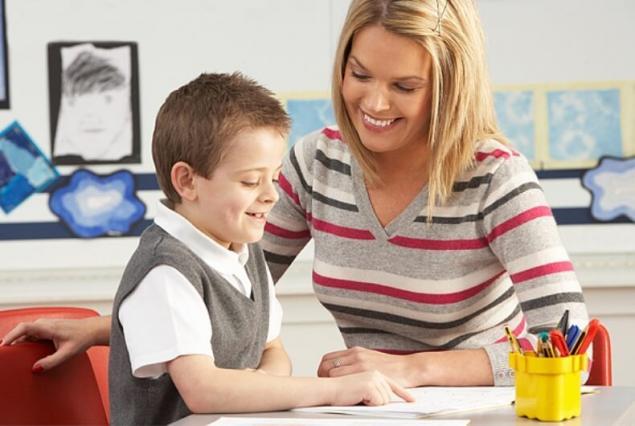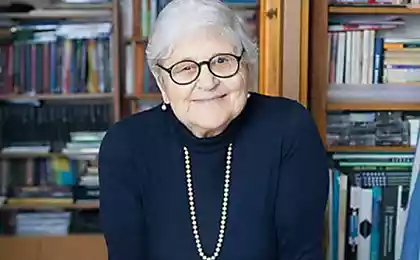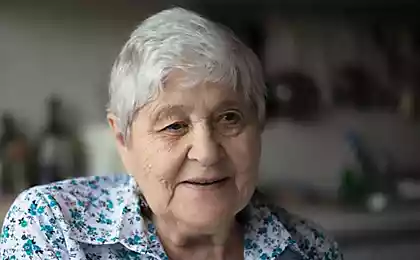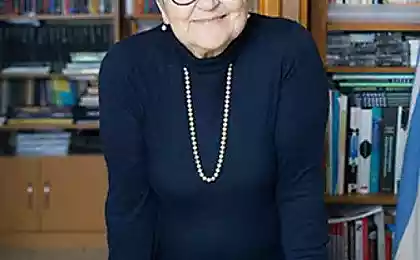480
Julia Gippenreiter: Top 5 results teachings
1. First, the most obvious result of the teaching - it is the knowledge that the child receives, or skills that he mastered.
2. The second result is less obvious: the child is progressing in the ability to learn, that is, learning to organize your life and work.
3. The third result - emotional trace of occupation, the impression of the studied subject material.
4. The fourth result - some conclusions about themselves, their abilities.
5. Finally, the fifth result - too emotional track, but from a parent (or teacher) and the relationship with him.

Let us remember: the parents in danger rely solely on the first result (What learned I've learned?). In no case can not forget about the other four, they are much more important!
Moreover, the significance of these results is growing in the reverse order - as you move from top to bottom. Let us consider them in order of importance.
Most important - the relationship with a parent or a teacher, the atmosphere, in which the study. Participation of adults may be different from careful observation to active assistance. In any case it is very important to maintain a friendly atmosphere. It is at a minimum. Very well, if something will enjoy a lively discussion and good luck.
In no case should not be allowed criticism and frequent references to mistakes! It is better to wait until the child is their own finds and corrects. If it is difficult, we can help, and that, rather leading questions. A frequent criticism of the amendment and only darken environment.
So here it is the result of either a positive (praise each other), or negative (enlarged piggy mutual grievances).
The second important result - a conclusion about themselves and their abilities: "I could," or - "alas, is beyond me."
This means that in the bank's self-awareness of the child will add confidence or lack of confidence in their abilities. It is clear that the role of the adult is very important: it is necessary to select the appropriate task difficulty, be friendly and patient (our first point), to be able to gently help, and when necessary - to leave the child alone, making it possible to handle himself.
Result: "I can do that!" Or "Alas, this is beyond me."
The next (third), the result - an emotional trace of occupation.
Positive or negative experiences of the child while studying migrated to study the subject. It would be for him or "interesting and attractive" or "difficult and nasty."
Positive or negative experiences are transferred to the object under study.
The surest way to exercise the child's ability to learn (the fourth item from the bottom) - leave it alone: from the beginning of the initiative pass him and care about the result! Supporting knowledge, at best, remembered mechanically, but do not add the ability to organize themselves and to overcome the complexity of the material.
Transfer the child care for his own studies.
Finally, the most obvious result - specific knowledge (skill). About him, too, it is worth considering. Admittedly, not everyone traveled to school is necessary in life, and students are beginning to understand the feeling of losing the sense of their efforts. However, much of the school subjects is given for the sake of "general education" and "mental retardation" - and against that you can not argue. But is it for the sake of the noble goal to push any knowledge, provoking dislike of subjects and - worse still - by suppressing the natural curiosity of the child
? Author: Yu.B.Gippenreyter
2. The second result is less obvious: the child is progressing in the ability to learn, that is, learning to organize your life and work.
3. The third result - emotional trace of occupation, the impression of the studied subject material.
4. The fourth result - some conclusions about themselves, their abilities.
5. Finally, the fifth result - too emotional track, but from a parent (or teacher) and the relationship with him.

Let us remember: the parents in danger rely solely on the first result (What learned I've learned?). In no case can not forget about the other four, they are much more important!
Moreover, the significance of these results is growing in the reverse order - as you move from top to bottom. Let us consider them in order of importance.
Most important - the relationship with a parent or a teacher, the atmosphere, in which the study. Participation of adults may be different from careful observation to active assistance. In any case it is very important to maintain a friendly atmosphere. It is at a minimum. Very well, if something will enjoy a lively discussion and good luck.
In no case should not be allowed criticism and frequent references to mistakes! It is better to wait until the child is their own finds and corrects. If it is difficult, we can help, and that, rather leading questions. A frequent criticism of the amendment and only darken environment.
So here it is the result of either a positive (praise each other), or negative (enlarged piggy mutual grievances).
The second important result - a conclusion about themselves and their abilities: "I could," or - "alas, is beyond me."
This means that in the bank's self-awareness of the child will add confidence or lack of confidence in their abilities. It is clear that the role of the adult is very important: it is necessary to select the appropriate task difficulty, be friendly and patient (our first point), to be able to gently help, and when necessary - to leave the child alone, making it possible to handle himself.
Result: "I can do that!" Or "Alas, this is beyond me."
The next (third), the result - an emotional trace of occupation.
Positive or negative experiences of the child while studying migrated to study the subject. It would be for him or "interesting and attractive" or "difficult and nasty."
Positive or negative experiences are transferred to the object under study.
The surest way to exercise the child's ability to learn (the fourth item from the bottom) - leave it alone: from the beginning of the initiative pass him and care about the result! Supporting knowledge, at best, remembered mechanically, but do not add the ability to organize themselves and to overcome the complexity of the material.
Transfer the child care for his own studies.
Finally, the most obvious result - specific knowledge (skill). About him, too, it is worth considering. Admittedly, not everyone traveled to school is necessary in life, and students are beginning to understand the feeling of losing the sense of their efforts. However, much of the school subjects is given for the sake of "general education" and "mental retardation" - and against that you can not argue. But is it for the sake of the noble goal to push any knowledge, provoking dislike of subjects and - worse still - by suppressing the natural curiosity of the child
? Author: Yu.B.Gippenreyter
6 exercises that will help you lose weight faster than jogging
Simple and useful technique of massage to relieve eye fatigue
























